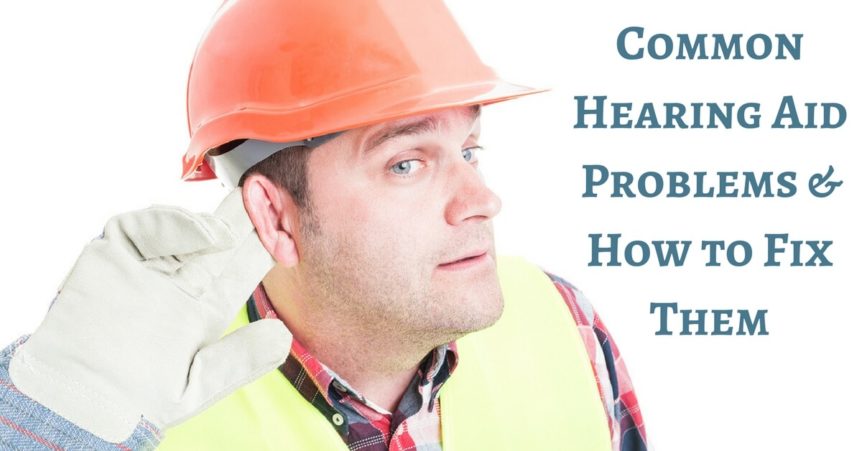Your hearing aids are truly incredible devices: they are sophisticated little machines that provide us with access to speech and the natural sounds of our environment. Most of us wear our hearing aids from morning until night, making the most of their powers. Even though hearing aids are designed to withstand different elements and environments, there are times when you may experience small problems with them. Here is our guide to troubleshooting common hearing aid problems.
Sounds are Too Quiet
Most hearing aids are highly customizable, allowing wearers options to adjust volume and program settings both on the device or wirelessly through a smartphone app. If you find that sounds are too quiet, check the program settings and volume levels. If this doesn’t help, check to make sure there is no blockage on your hearing aid due to earwax or other debris. Depending on your hearing aid model, you may also want to check the tubing to make sure there are no cracks or moisture.
No Sound
Test your hearing aids every morning when you put them in. Turn on your hearing aids and rub your hands next to your ears. You should hear the sound clearly. If your hearing aids are not producing sound, the first thing to do is check to make sure your batteries are full and properly placed. Check to see if there is earwax blocking any part of the microphone, and clean any debris you see. You may also want to check the volume to make sure it is turned up.
Distorted Sound
Sounds may become distorted due to battery problems, so check your batteries to make sure they are not corroded. Try replacing the battery as well. Distorted sound may also occur due to changes in your program settings. Try switching to a different program setting to see if this will help sound quality.
Feedback Noise
Feedback occurs when your hearing aid microphone picks up sound that is being amplified. This causes a sound loop, which will cause a whistling or buzzing sound. These sounds can be very unpleasant and frustrating. If you are experiencing feedback sounds, the first thing to do is remove and re-insert your hearing aids. Often times, feedback occurs because hearing aids are not placed properly. If this doesn’t work, it may be an issue with the volume. Try adjusting your volume settings.
Daily Maintenance
To ensure optimal performance from your hearing aids, it is important to conduct daily maintenance. In addition, it is important to schedule regular maintenance and checks with us Neighborhood Hearing Centers.
On a daily basis, your hearing aids are exposed to humidity, moisture, perspiration, earwax, and other elements that could compromise their electronic components. Daily maintenance ensures the longevity of your hearing aids.
When cleaning your hearing aids, use the tools provided by your hearing specialist to remove earwax. Usually, this will be a soft brush, small picks, and loops. Follow the instructions provided by your hearing specialist for removing earwax. If there are trouble spots, do not try to take your hearing aids apart to remove earwax; instead, contact us at Neighborhood Hearing Centers.
You may also use a soft, dry cloth to wipe your hearing aids clean at the end of the day. Avoid using water or any other liquid to clean your hearing aids.
Proper storage of your hearing aids is crucial to their longevity. Some hearing aid manufacturers provide dehumidifying units for their models; if not, you may consider investing in one especially if you live in a warm climate. Avoid storing your hearing aids in the bathroom or other environments that may be moist. Additionally, store your hearing aids in a place that is out of reach of children and pets.
If you are removing your hearing aids during the day, be sure to store them in a safe place. It is recommended to remove your hearing aids before taking a shower or going to the spa, swimming, using a hair dryer, going to a hair stylist, or using different types of sprayed products (hair, body, etc.). These liquids could harm your hearing aids.
When to Bring Your Hearing Aids in for Repair
Your hearing aids are designed to be durable and reliable. However, if you are experiencing regular problems with your hearing aids, schedule an appointment with us Neighborhood Hearing Centers. We provide professional, comprehensive maintenance and repair services for your hearing aids.

